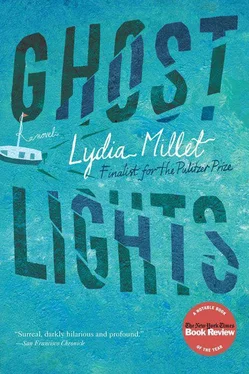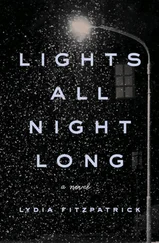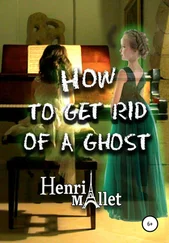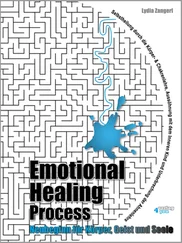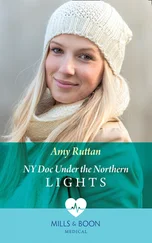Lydia Millet - Ghost Lights
Здесь есть возможность читать онлайн «Lydia Millet - Ghost Lights» весь текст электронной книги совершенно бесплатно (целиком полную версию без сокращений). В некоторых случаях можно слушать аудио, скачать через торрент в формате fb2 и присутствует краткое содержание. Издательство: W. W. Norton & Company, Жанр: Современная проза, на английском языке. Описание произведения, (предисловие) а так же отзывы посетителей доступны на портале библиотеки ЛибКат.
- Название:Ghost Lights
- Автор:
- Издательство:W. W. Norton & Company
- Жанр:
- Год:неизвестен
- ISBN:нет данных
- Рейтинг книги:5 / 5. Голосов: 1
-
Избранное:Добавить в избранное
- Отзывы:
-
Ваша оценка:
- 100
- 1
- 2
- 3
- 4
- 5
Ghost Lights: краткое содержание, описание и аннотация
Предлагаем к чтению аннотацию, описание, краткое содержание или предисловие (зависит от того, что написал сам автор книги «Ghost Lights»). Если вы не нашли необходимую информацию о книге — напишите в комментариях, мы постараемся отыскать её.
How the Dead Dream
Ghost Lights
Ghost Lights
Ghost Lights — читать онлайн бесплатно полную книгу (весь текст) целиком
Ниже представлен текст книги, разбитый по страницам. Система сохранения места последней прочитанной страницы, позволяет с удобством читать онлайн бесплатно книгу «Ghost Lights», без необходимости каждый раз заново искать на чём Вы остановились. Поставьте закладку, и сможете в любой момент перейти на страницу, на которой закончили чтение.
Интервал:
Закладка:
Lydia Millet
Ghost Lights
1
The walls were kittens and puppies. Like other pet facilities he had seen — even the Humane Society, where he had taken Casey when she was six to pick out a kitten — the kennel trafficked in a brand of cuteness he could not endorse. He had nothing against pets; in theory, the more pets the better, although he personally did not own one. Not in the sense of unchecked proliferation, feral cats mating all over the place, etc., but in the sense that cats were good, dogs were good. No argument there.
But he did not see why this high regard for pets, his or anyone else’s, should be represented by photographs of puppies with word balloons emerging from their mouths — balloons that contained supposedly witty sayings that were, in fact, stupid. There was no call for dachshunds dressed up as the Blues Brothers.
Susan’s name had been on the list of emergency contacts for this particular dog. When its owner failed to pick it up after several weeks the kennel had finally called her. Instantly she felt guilty; she should have thought about the dog far sooner, she told Hal. She had forgotten the dog, forgotten all about it.
What was wrong with her? she asked him insistently.
Now here they were, come to pick up her missing boss’s dog — the dog of a man who had vanished many weeks ago into a tropical jungle — and the woman at the front desk was worried for the dog. Not for the absent owner, no. She was interested only in the dog’s situation.
Hal glanced over — surreptitiously, he hoped. She was a heavy, lank person with bleached hair showing black at the roots and a kind of jowly gray pallor that bespoke ill health. Neither dog kennels nor the Humane Society were typically staffed by so-called beautiful people, in his experience. They were staffed by committed pet lovers, and frankly these committed pet lovers put less than average value on appealing physically to their fellow men.
Or maybe they sought out the company of pets in the first place because they did not enjoy the company of said fellow men. It was understandable — a form of relaxation, perhaps. Even if he himself was not a committed pet lover per se, a committed a.k.a. professional pet lover, he could appreciate that. As to the lank half-dyed hair, greasy pallor, etc., they were probably caused by a philosophy. Hygiene and style were aimed at winning the favor of others, after all, and the committed pet lovers already had the respect, or at least the gratitude — which might even be preferable, in the eyes of a committed pet lover — of peers and strangers alike. They were monks and nuns, in a sense. Monks and nuns of the pets.
The dog woman held up a rubber banana printed with a smiley face and squeezed it. It squeaked.
“She’s not eating well. I recommend a chew toy. It could ease the transition.”
Susan, on the other hand, was worried not about the dog but for the dog’s owner, her boss. She was fond of this employer far beyond the livelihood he provided, which might no longer be forthcoming since he was gone from the United States and possibly also dead.
She had confessed she was afraid of this. She had leaned over in bed and whispered her fear in the small hours of the morning. She was afraid her employer, to whom she had grown close — in the kind of unequal, crypto-friendship for which such relations occasionally allowed — would never return from the tropics, where he had disappeared some weeks ago while ostensibly conducting some routine business.
Hal was strongly ambivalent about the employer, known for some no-doubt-pretentious reason simply as T. For starters, he refused to refer to the guy using a single letter. He called him by his last name Stern, though seldom to his face. But Susan would brook no criticism. Ever since the boss guy’s girlfriend died — for which Hal had sympathy, of course, but which still did not sanctify him — he could do no wrong in her eyes. To her he had become almost a son surrogate.
“Just sign these and we’ll release her into your custody,” said the dog woman abruptly, and shuffled papers. Susan was shaky, emotional, and clearly the dog woman was uncomfortable with this display. She handed Susan a clipboard and a pen. “She’s all up to date on her shots, see? Two months ago, 08-05-94 it says here. And the leg’s healed pretty well where it was amputated. The name and number of the vet he uses are on the card here. Wait a minute and I’ll make you a copy.”
She turned and disappeared through a doorway.
“It’s a three -legged dog?” he asked Susan.
“She was run over.”
“I didn’t know it was a dog amputee.”
Susan seemed to be trembling. He pulled her closer and held her. First the man let his dog run around in the street till she was hit by a car, then he flew off to Central America and left her in a kennel.
Quite nice.
After a minute Susan pulled away. While she busied herself rummaging around in her purse he wandered over to a door marked RESTROOM. He often escaped to bathrooms when he was in public, stood at sinks and gazed into mirrors. Bathrooms were the respite. What would he do without them? From when he was a boy, gangly and shy, he had found comfort here.
Slowly he washed his hands, let the warm water run. On the wall behind him was a mural of clouds, with stylized dogs and cats jumping among them. In the mirror he saw himself with a flying poodle over his head.
The three-legged dog deserved to be happy, as did they all. But a three-legged dog was not a four-legged dog. A three-legged dog had to mean more upkeep, with the addition of pathos. . of course, this right here was the kind of impulse Casey despised. She hated pity and railed against it, in particular the presumption that pity implied and the way it had of raising one person above another, subjugating the injured and then elevating them to make up for it. Injury is not a moral state, she had said to him once when she was angry. People think disability makes you a better person — on the inside you must be some kind of martyr, they figure, since on the outside you’re wrecked. But losing the use of your legs does not make you the Dalai Lama, she said. So the pity, which people usually reserve for things that don’t threaten them, is bullshit.
He accepted this, from her perspective, but pity was a fact of life when it came to dogs with amputations and when it came to the paraplegic. There was nothing in his life that had hurt him more than what happened to Casey, the shock of which would never fully recede; so he and Susan already had, occupying the central space in their lives, a victim — the only victim, the closest victim possible. They did not need a canine victim too. They were decent people but they were not cut from the same cloth as the kennel employee. They were not caregivers first and foremost; they didn’t wake up in the morning and say, “Hey! Let’s go nurture something.”
They were only parents.
Other parents, whose children had not been hurt, could never know how parenthood could be extended infinitely on the heels of such an event and become a domed universe, a closed universe beneath the opaque dome of the accident. Even the stars were not visible anymore.
The Milky Way, he thought suddenly. The Milky Way was out there. Not only that — a hundred billion galaxies, some with a trillion stars.
Shifting away from the blurry spiral arms that could not be fathomed, he gazed at the tiles on the wall beside him, their creamy blandness. At a certain moment — oftentimes at the crossroads between youth and adulthood — a change of position occurred between the self and the world. As a child and even a teenager he had felt small, looking up at the rest of it all as a monument, but then suddenly he was older and part of the architecture, its tangibility and the impulse behind it, its failings and its strengths. The heavy installations had lost their majesty and seemed temporary, even shoddy, with a propensity for decline.
Читать дальшеИнтервал:
Закладка:
Похожие книги на «Ghost Lights»
Представляем Вашему вниманию похожие книги на «Ghost Lights» списком для выбора. Мы отобрали схожую по названию и смыслу литературу в надежде предоставить читателям больше вариантов отыскать новые, интересные, ещё непрочитанные произведения.
Обсуждение, отзывы о книге «Ghost Lights» и просто собственные мнения читателей. Оставьте ваши комментарии, напишите, что Вы думаете о произведении, его смысле или главных героях. Укажите что конкретно понравилось, а что нет, и почему Вы так считаете.
